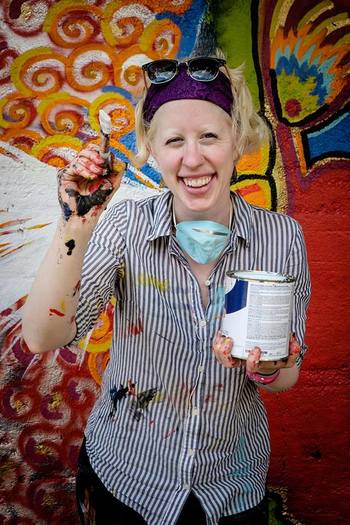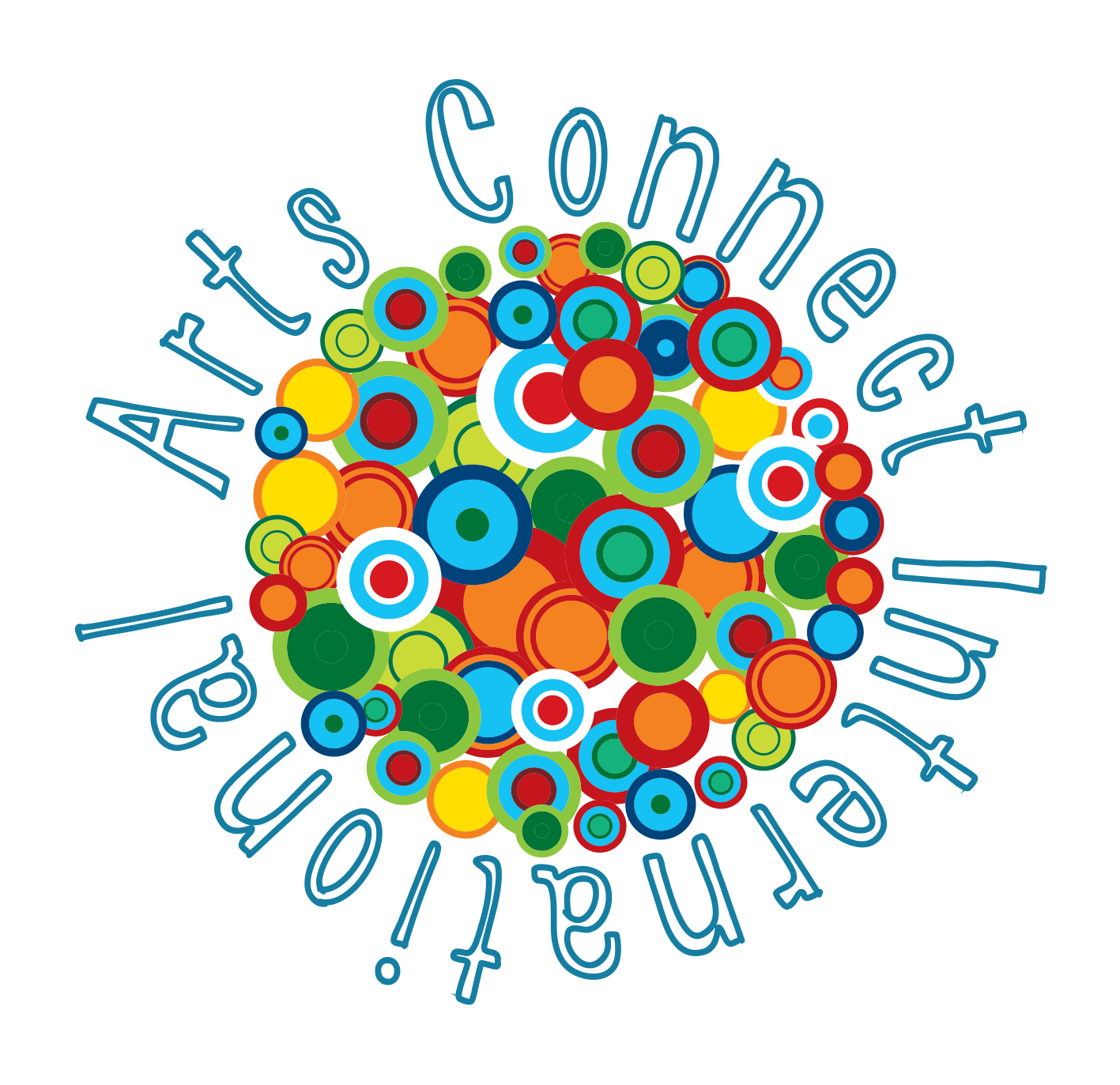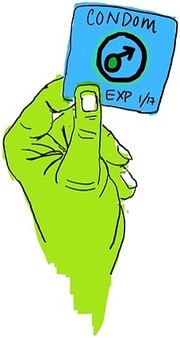7 DRESSES 4 HEALTH: Day 308 - Day 314 ~ November 4th - November 10th ~
Guest Blogger Bio: Charlotte Hager, MPH, CHES is Senior Research Project Coordinator for Project Connect Baltimore at Johns Hopkins University. Ms. Hager specializes in adolescent sexual and reproductive health with focus on teen pregnancy prevention through LARC initiation (Long Acting Reversible Contraceptives). But because Charlotte obviously needs more to do, she is also an artist who loves spending her remaining free time as a painter, muralist, and co-founder of an artist cooperative in Washington DC. She’s addicted to coffee and loves Michael.
Teaching Teens how to Have GOOD Sex




In this day and age we have somehow convinced ourselves that we are progressive. We have vagina emojis and pass out free condoms quite literally everywhere. But sexual and reproductive health is so much more than sticking condoms on bananas. Sexual and reproductive health education, at any age, needs to start with a pretty simple but core tenant: if you’re having sex, it should be healthy, happy, safe, and GOOD SEX.
So let me back up a moment and explain where I’m coming from. I have spent the last 5 years working directly with teenagers in high schools, juvenile detention centers, community organizations, and even – believe it or not – churches to have very frank conversations about sex and sexuality. If teens are going to have sex, I talk to them about how to have healthy, happy, safe, and good sex. They deserve GOOD SEX!
The naïve approach to sex education in America, unfortunately, has predominantly been “if you don’t talk about sex, teens won’t have sex.” When training adults how to have these very difficult “sex talks” with teens, one of the most consistent responses I hear is “my teen isn’t having sex, I know it. They would have told me.” But the problem is that these well-intentioned, loving parents/ guardians/ professionals aren’t really having these conversations with teens. Adults struggle to recognize teens as developing, sexual creatures all the while worrying that they need to know everything about sex and health to talk to a teenager. And teenagers worry that adults will be mad at them for having sex or won’t understand if they have questions about sex. So nothing really gets said.
Discussing the dynamics of sex with a teenager is not easy. Teenagers are not naturally inclined to open up and share their thoughts and emotions. Mind you, teenagers are at an age where their brains are still developing. They’re a creature of confusing, raging of hormones who uphold peer acceptance over rational thinking. Instead of talking about their newly developing bodies and relationships with adults, they turn mostly to their friends and the internet for answers. Next thing you know these teens – who adults assumed aren’t having sex – are in abusive relationships, have contracted an STD or HIV, have gotten pregnant and had a kid, or have had to figure out how to pay for an abortion at 14 years old. These teenagers then grow into adults who still have no idea about their bodies, about pleasure, about relationships, about how to have GOOD SEX.
It’s critical to note that what happens with the wellbeing of our teens affects all of us; they are a part of our community’s future. The United States has the highest unplanned pregnancy rate of any industrialized nation, and a staggering teen pregnancy and birth rate. It’s reported that 70 percent of all teenage pregnancies are considered unplanned. Teenage parents face an increased likelihood of challenges to becoming healthy, successful adults – including poverty, child abuse and neglect, low birth weight, school drop-out, and lower-wage jobs. Teen pregnancy and birth can also cost tax payers an estimated $9.4 billion a year. There are great teen parents, for sure, but it’s harder when the teen isn’t ready to have a kid of their own. In addition, teenagers account for 50% of new STD cases and are the fastest growing age group contracting HIV. I’m not saying teaching about arousal and relationships will entirely fix this issue. But the current sexual and reproductive health approach – with just free condoms and pregnancy shaming adsare not enough.
This brings me to my big point: we need to teach teens how to have GOOD SEX and that sex is okay. Whether they’ve already begun having sex, want to wait awhile until they have sex again, or have never had sex, it is crucial to teach them the core principals of healthy, happy, safe, and GOOD SEX from an early age.
HEALTHY SEX means having healthy relationships. Whether they’re casual or exclusive, all types of “relations” must have trust, respect, and communication.
HAPPY SEX means taking care of your mental health and well-being. This also means learning the signs of abuse (physical, emotional, verbal, and psychological) and trying to steer clear of those types of relationships. In addition, happy sex means consensual sex 100% of the time.
SAFE SEX means, as I like to say, “Get your business checked!” This means using a combination of contraception (condoms, dental dams, finger condoms, pills, patch, nuva ring, depo, implant, IUD, abstinence) and getting tested and treated regularly for STDs and HIV.
GOOD SEX brings together everything: the healthy, happy, and safe into an act of mutual pleasure and respect. From hook ups to monogamy, the spectrum must have all of the aforementioned components to be GOOD SEX.
But let’s not forget about pleasure, arousal, and partner satisfaction. I always make sure to include a very honest conversation about the importance masturbation and lubrication for yourself and your partner’s pleasure.
Teaching teens about GOOD SEX can help them – as they grow into adults – take better control of their sexual development and possibly make smart[er] decisions that line up with their life plans. For decades studies have proven that real conversations about real health topics with caring adults canmake a difference. During the teenage years, young people are beginning to explore what it means to be casually or exclusively with another human. Instead of sexual health education based on guilt and consequences, sex ed should be about learning what a relationship actually means, what love could mean, what feels good both physically and emotionally, and how to advocate for themselves and their wellbeing.
We need to meet teens where they’re at in their sexual journey. With as little judgment possible, caring adults can discuss with teens their goals and how their behaviors and relationships will influence them. Did you know that the number one protective factor for preventing a teenager from engaging in risky, sex behaviors is actually having an adult in their life- an adult who cares, who listens? Yes, at times we adults might actually know what’s better for our teens, having already been a teenager ourselves. But we need to stop thinking that abstinence-only education works (spoiler alert: it doesn’twork) or that by avoiding the sex talk, teens won’t have sex. It’s time for a new approach because whether we like it or not teens are having or will someday have sex.
So it might as well be GOOD SEX.
Guest Blogger, Charlotte Hager
Check out Charlotte's Artist Website & Facebook Page!
Call to action: Do you have important information around one of our seven causes: HIV/AIDS, Mental Health, Nutrition, Heart Disease, Maternal Child Health, Cancer, Disability, that you want to share with a wider audience? Do you or a loved one currently live and/or struggle with one of these causes? Do you work in research, advocacy, prevention, treatment or care? We want to hear from YOU! Write to us today: 7dresses@artsconnectinternational.org to become a featured blog writer. Another way to get involved is to wear the color of the day in solidarity. Take a picture of yourself in the color of the day and Tweet it @ArtsConnectInt, tag us on Instagram @ArtsConnectInt, or send it to us on Facebook.
About 7 Dresses 4 Health (7D4H): 7D4H is a year-long arts and health education campaign lead by visual artist, Marian Brown, in conjunction with Arts Connect International. The objective of the campaign is to promote inclusive community practices through adDRESSing health artistically and collaboratively. To learn more about the genesis of the project, read Marian’s New Year Blog.
About this week's look & location: All of the dresses for 7 Dresses 4 Health were designed and sewn by Kim's Fashion Design. Love the look? Visit Kim at 100 Huntington Ave, Boston MA 02116, call her at (617) 267-9299 or email her: info@kimsfashion.com. Mention 7 Dresses 4 Health for a special discount!
Campaign Update (2017): All 7 Dresses 4 Health blogs were migrated from a former site, so the sharing analytics are inconsistent from when they were first published. We apologize to our guest bloggers, and readers, for this inconvenience. That said, the campaign garnered an average of 5K hits per blog, over 500,000 readers throughout 2015! Additionally, the average number of shares per guest blog was over 150x on social media (through Facebook and Twitter). Thank you for making this incredible campaign possible - and for all that it was for so many. With gratitude, Marian & the ACI Team





